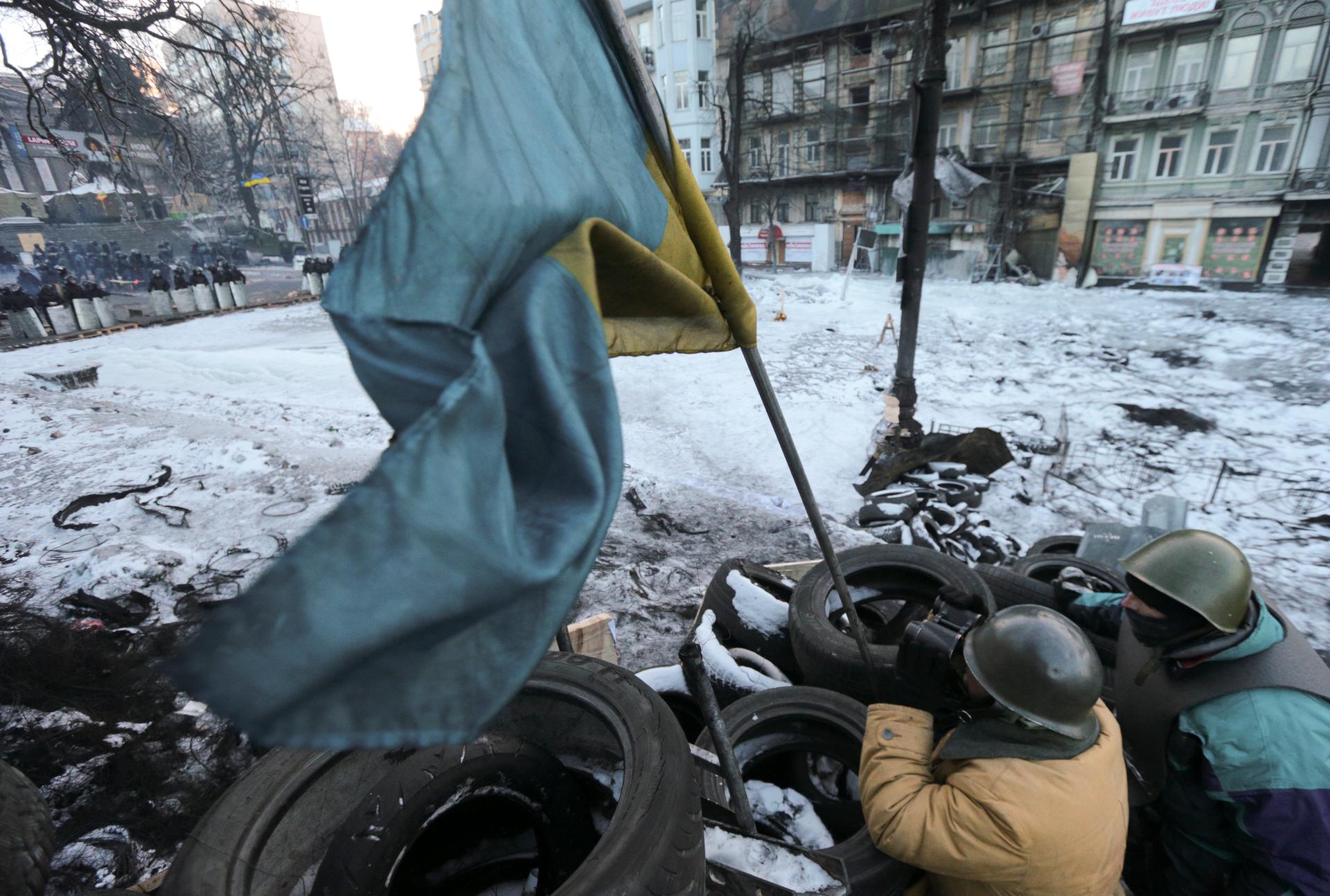Ukrainian president calls in ‘sick’ leaving historic crisis in the balance
A demonstrator uses binoculars to keep an eye on security forces in the Ukrainian capital Kiev.
Ukrainian president, Viktor Yanukovych, went on 'sick leave' Thursday, while protesters remain encamped in the capital, Kiev.
Yanukovych’s sick leave was announced on his presidential website with minimal information.
“There was a very terse statement,” said the BBC’s David Stern who is in Kiev reporting on the protests. "He has an acute respiratory virus but beyond that, nothing."
Sick or not, the situation on the streets of Kiev and Independence Square is not any calmer says Stern. Despite bitter cold, the protesters’ tent camps remain and opposition leaders say that they’re not leaving.
On Wednesday, the Ukrainian Parliament voted on a bill that would extend an amnesty to protesters under certain conditions.
“They must leave the government building that they occupied and they must dismantle their barricades, and only then will they be extended their amnesty,” said Stern.
The amnesty law is only good for 15 days. The opposition rejected this bill stating that it imposed conditions that they just couldn’t agree with. This impasse and Yanukovych’s sudden illness seems to have left things at a standstill says Stern.
“The president has gone on sick leave and has not signed this law and has not signed another law that parliament passed earlier in the week that repealed a much hated anti-demonstration law,” said Stern, “And now he’s taking a break, it’s not clear where exactly the demonstrations or the governments’ actions will go from here.”
Yanukovych had been the target of huge protests for the last couple of months. He angered many Ukrainians by rejecting closer ties with the European Union, and choosing instead to maintain closer ties with neighboring Russia.
There are many factors fueling the unrest in Ukraine. For Borys Gudziak the key factor is the country's past. Gudziak is a bishop with the Ukrainian Greek Catholic Church based in Paris. The US-born cleric says the crisis in Ukraine is rooted in its history as a repressed nation.
"People in Ukraine have really suffered for many years," said Gudziak. "In the 20th century, 17 million were killed in a sundry of ways, through world wars, through purges, through the artificial famine that Stalin organized. So there is a profound reflex of fear."
For much of its history, that repression was directed from Moscow.
The Ukrainian-American cleric, originally from Syracuse, New York, lived for many years in Ukraine. He says it has a population "that carries a certain sadness based on its history. It's been treated as a country, as a geography, and also as an ethnic-cultural reality, as something second-class… It has been abused and that abuse has left scars."
Gudziak says that today, Ukrainians are standing up and saying "we have a dignity. It's a god-given dignity, and we will stand it out, because we cannot endure this corruption and injustice any more."
When asked about Moscow's take on the crisis in Ukraine, Gudziak says that without Ukraine "the Soviet Union or its successor state is no longer an empire, is no longer a super-power. Many, many exponents of Russian ideology consider that imperial status something to be desired, and hence the views toward Ukraine."
Russian media is reporting the crisis as a revolution and making it look like Ukraine is on the brink of civil war.
Gudziak says there's historical precedent for direct intervention by Russia.
"Ukraine has been occupied by Russia for centuries in the past," he said. "But I hope that common sense and human values will prevail. I think we're safe (through) the Oympics for sure."
